How to sound like IV from Sleep Token: "He likes long necks and heavy gauge strings, with 084-010s his set of choice to provide a thick, rounded tone"
IV's rig secrets revealed, from guitars and effects, to tones and tuning – plus, our pick of budget alternatives to his go-to gear

Few bands in recent history have enjoyed a rise as meteoric as Sleep Token. Obscured identities, a villainous mystique and three celebrated albums in three years have coalesced to make them one of the most talked about bands in the world.
They’ve found huge success with a polyamorous sound where crunching djent riffs, sultry hip-hop turns, and sugary pop motifs are all equally at home in their atmospheric prog metal melting pot.
Though frontman Vessel and drummer II are the only two members credited as songwriters across their discography, their guitarist IV, has hugely impressed during their theatric live shows. Thankfully, while the guitarist’s identity remains a mystery, the gear he uses for his arena-crushing performances is not. As the band embarks on their biggest US tour to date in support of latest album Take Me Back To Eden, we detail everything you need to sound like IV, including our pick of budget alternatives.
How to sound like IV: Guitars
The most striking of IV’s riff machines is his custom-built Jackson eight-string Monarkh. Crafted by Jackson’s master builder, Mike Shannon, it features a 28” scale length, Fishman Fluence active pickups, an EverTune bridge, and an eye-catching Pale Moon Ebony fretboard.
Notably, the guitar doesn’t feature a multi-scale or fanned frets, unlike guitars he has previously touted, like Jackson's X Series Soloist SLAT8. However, this was built before EverTune’s breakthrough with multi-scale guitars.
The band plays in Drop D#1 tuning (D# G# D# G# C# F# A# D#) and, as revealed by his guitar tech in this 2023 video for Jackson, IV “likes long necks and heavy gauge strings”, with 084-010s his set of choice to provide a thick, rounded tone. He also likes to pick hard, so don’t be afraid to dig into those strings.
IV also tours with Misha Mansoor’s signature Jackson SoCal Strat ($2,699/£1,999), which gets its outings for the band’s softer material, like Aqua Regia and The Summoning’s seductive outro.
All the latest guitar news, interviews, lessons, reviews, deals and more, direct to your inbox!
Get the gear
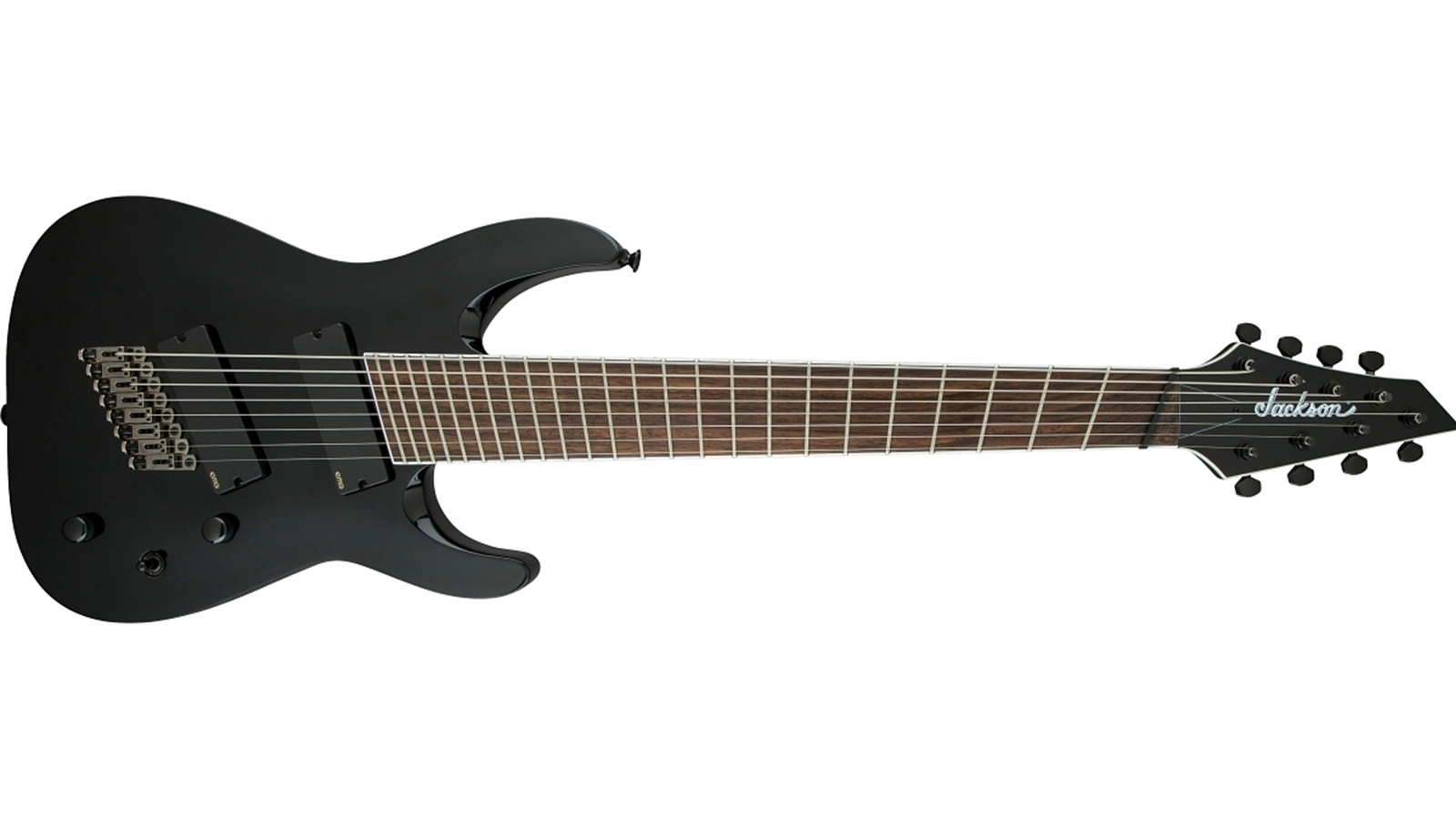
Jackson X Series Soloist Archtop Slat8 FF
$999/£849
While IV's custom Jackson is a slight departure from his factory Soloist SLAT8, the multi-scale guitar is still extensively used on the road. It features a 26-28" scale, with its archtop basswood body sporting a gloss finish. It's paired with a one-piece maple neck (12-16" compound radius) with laurel fretboard and 24 jumbo frets. Noticeably, it stocks EMG 909 humbuckers, which are actually built for nine-string guitars, but have proven effective in eights, too.
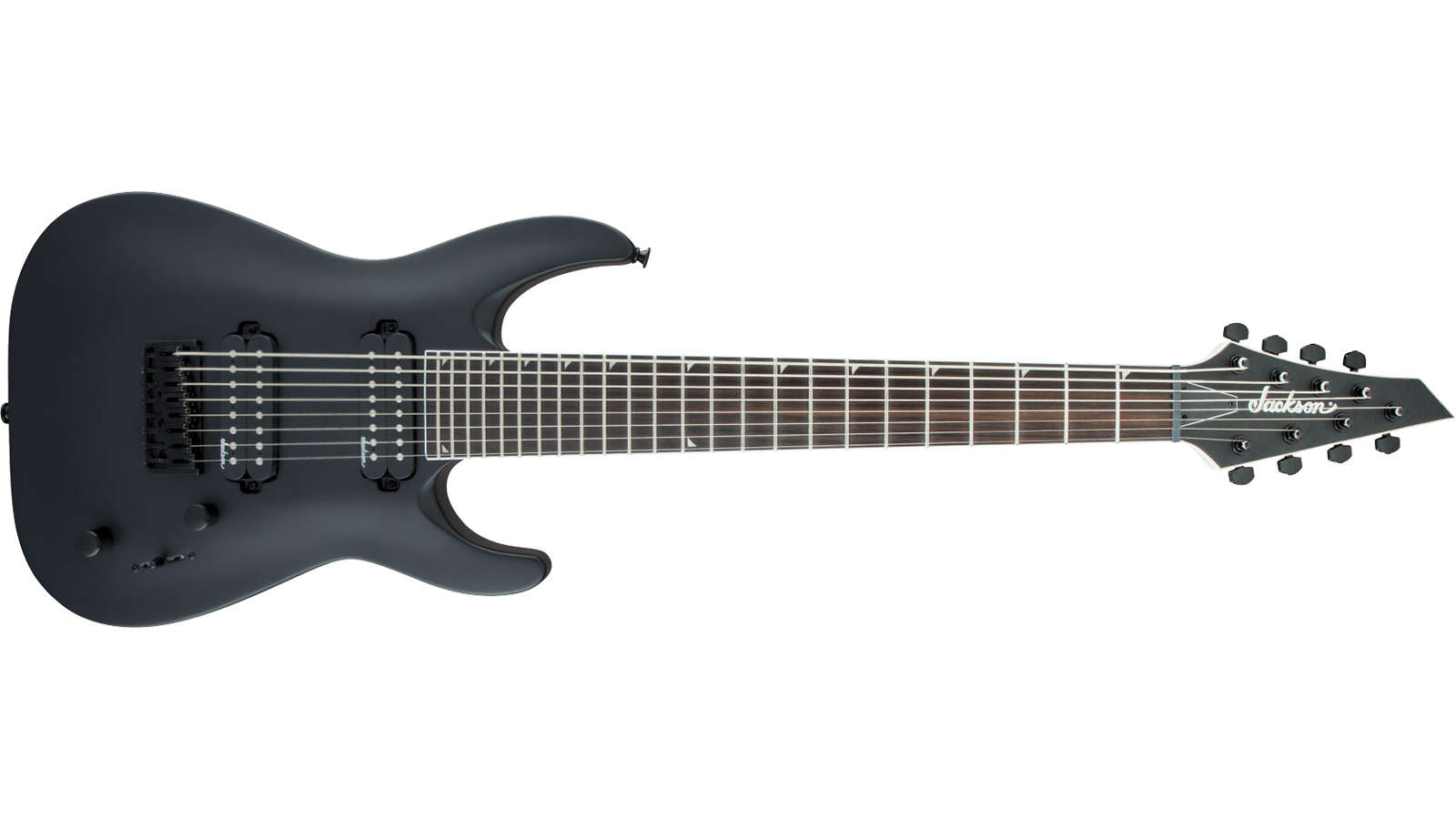
Jackson Dinky Arch Top JS32-8 DKA HT
$399/£399
Keeping it in the arch-topped Jackson family, the Dinky Arch Top JS32-8 DKA HT is the most affordable alternative available right now. There are still eight strings, and 24 jumbo frets on a maple neck with the same 12-16" compound radius. However, it’s body and neck woods have been swapped out for poplar and amaranth respectively. Own-brand Jackson High Output 8-String humbuckers are the biggest difference, and what helps keep the price point down.
If you want a budget eight-string with the same 26-28" multiscale and Fishman Fluence pickups, you're not going to find a cheaper option than Cort's KX508M $1,119.99 which gets a great low-end growl with its Okoume body and poplar top.
How to sound like IV: Baritones
Away from eight-strings, baritone guitars play a big role in Sleep Token and, again, IV has a custom shop model as his number one.
Its 30”scale length takes his long neck love to a whole new frontier, while its striking Pale Moon Ebony fretboard and Luminlay side dots combine with a roasted maple neck for another standout design.
For this build, IV has opted for Lundgren M6 pickups, a brand brought to the fore by Meshuggah’s Fredrik Thordendal. D’Addario 24-84 gauge strings are said to be his preferred choice, keeping that same thick, cable-like consistency across his riff-making fleet.
Get the gear
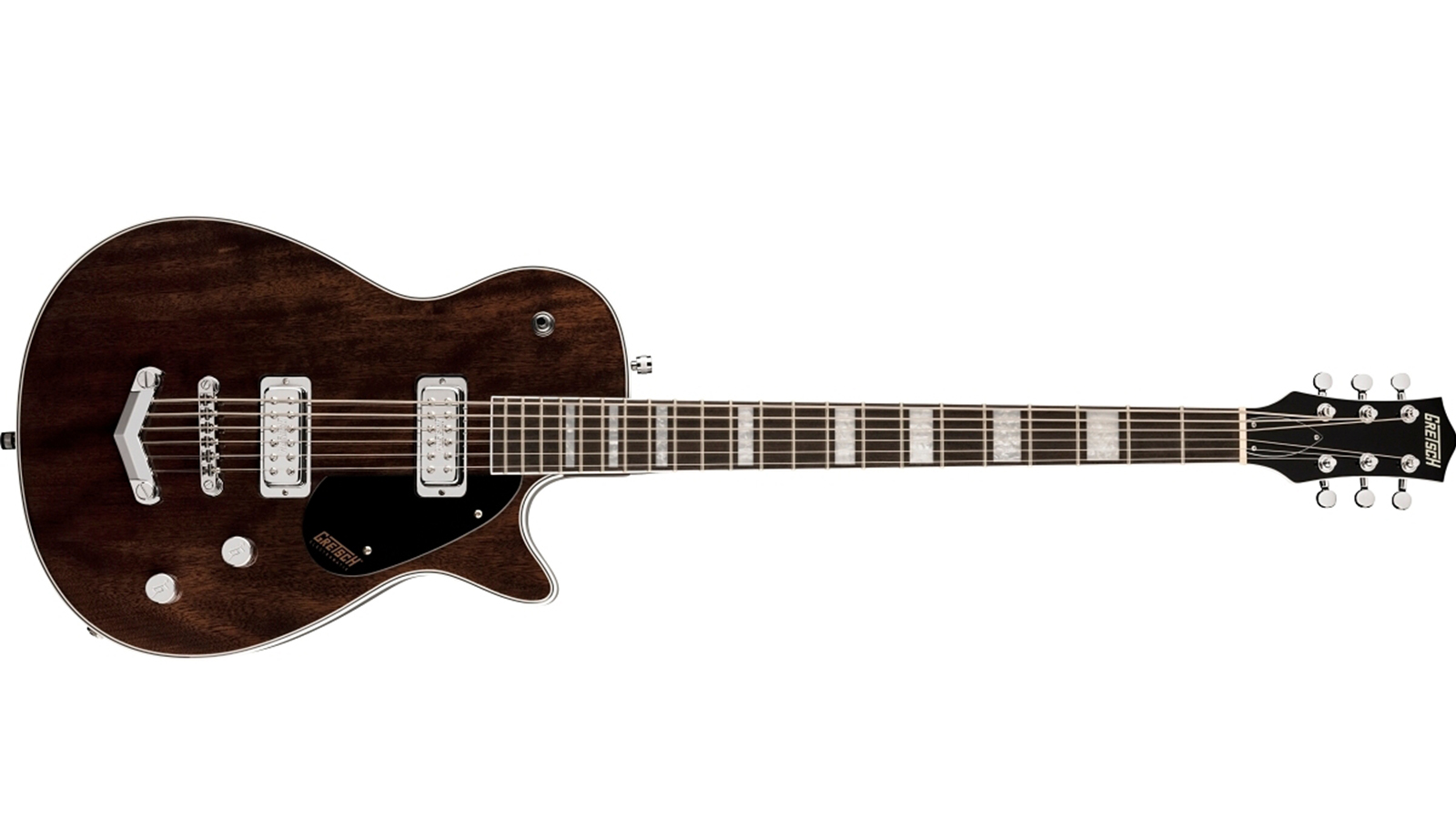
Jackson custom shop build ($5,000+)/Gretsch G5260 Electromatic Jet Baritone ($549/£519)
Failing convincing Jackson to recreate IV’s off-menu baritone, the fairly cent-sensitive Gretsch G5260 has been IV’s go-to for years prior to his tailored beast. This too sports a giraffe-esque 29.75” scale length, mahogany body, and – this time unroasted – maple neck. Its laurel fretboard and Gretsch mini humbuckers are your biggest differences, but it’s a guitar that has long since had IV’s stamp of approval.
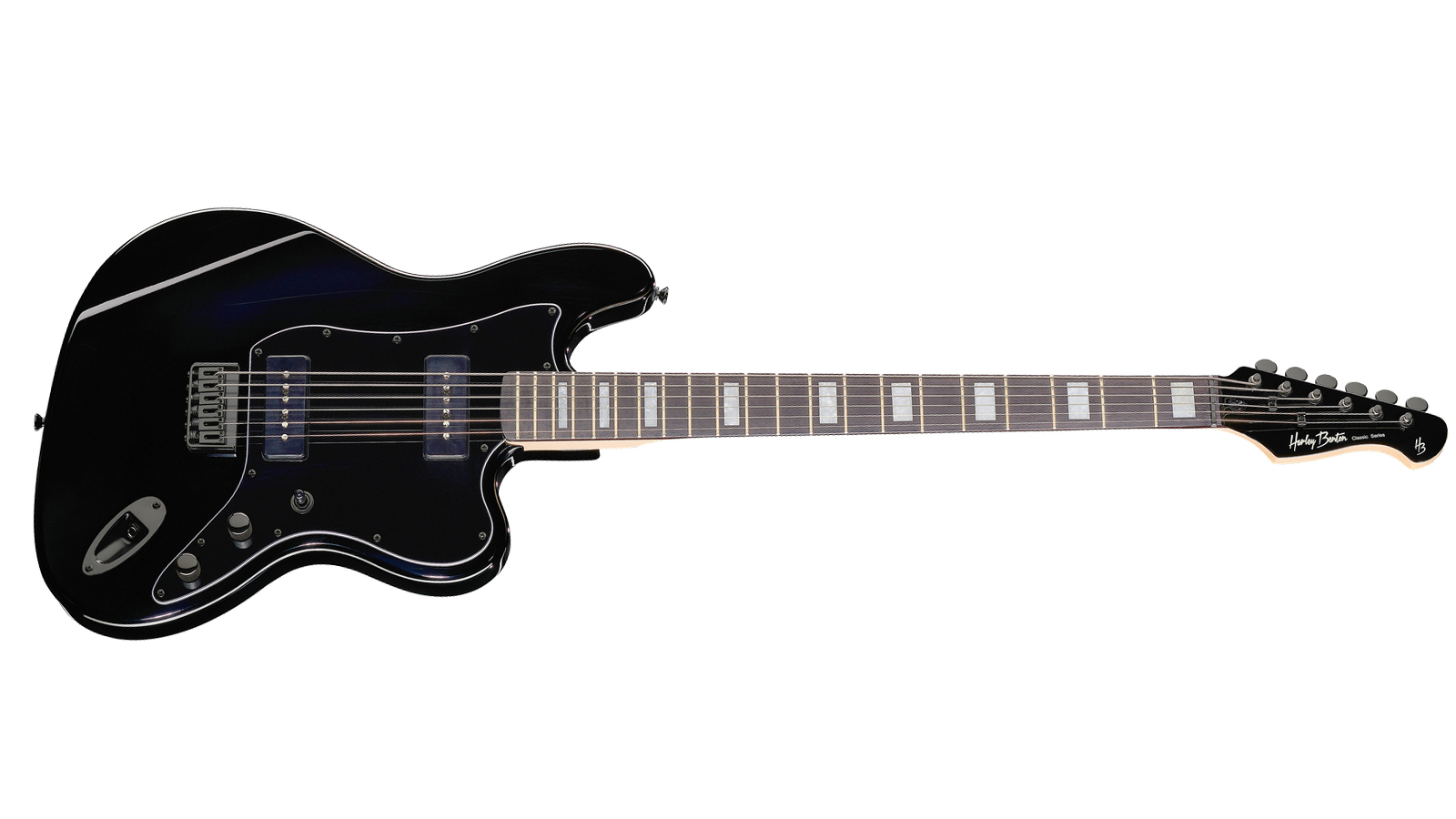
Harley Benton JA-Baritone BK
$177/£169
Harley Benton's JA-Baritone BK is the best 30" scale budget build – uniting a poplar body with a maple neck and purple heart fretboard and equipping it with P90-style vintage single coil pickups. It also looks the part with its black-on-black aesthetic – although IV’s ice blue SoCal does make a mockery of that.
How to sound like IV: Tones
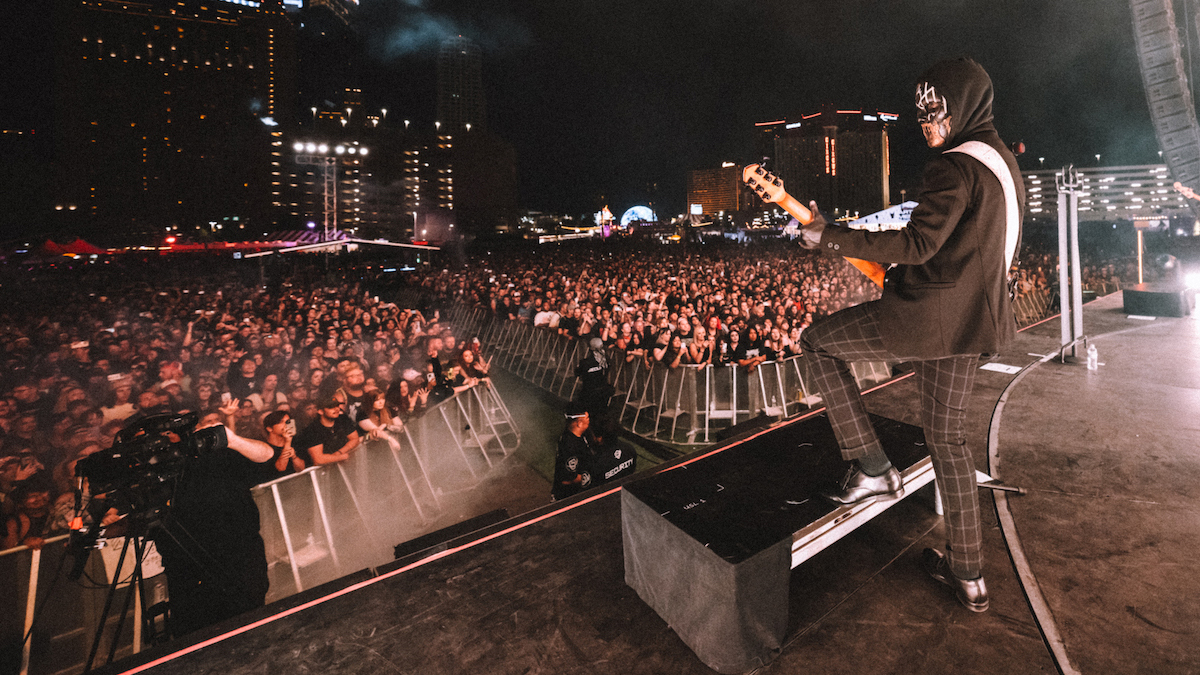
Since IV’s guitar tech let slip that he uses a Kemper modeling amp live, the band has been listed as using Quad Cortex floor modellers on the road. It’s widely believed (although not officially confirmed) that Neural DSP’s Archetype Gojira plugin was used extensively on latest album, Take Me Back to Eden. Having worked with producer George Lever for their first two records, his presets would be a good starting point.
Get the gear
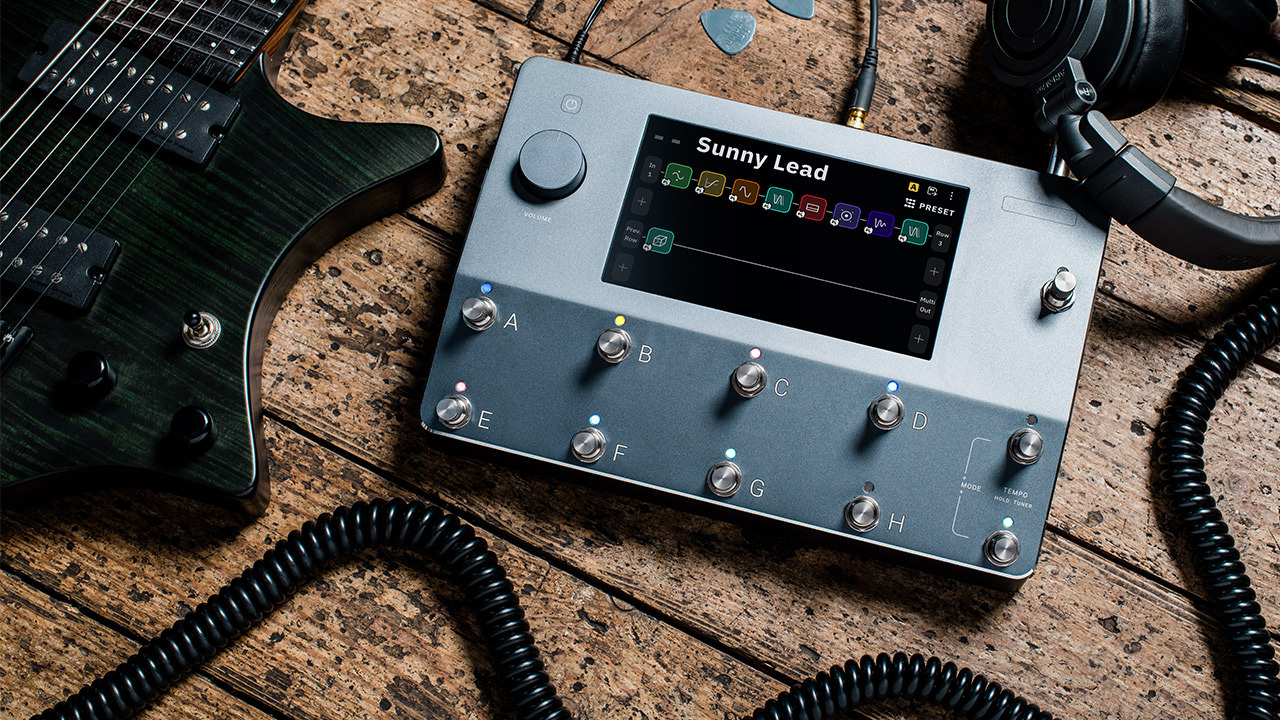
Neural DSP Quad Cortex
$1,699/£1,499
While the band’s secrecy means they’re unlikely to share their tone secrets any time soon, there is a whole community of tone chasers creating and sharing their hacks, like YouTube account, Soundwavespr.
They’ve crafted a whole suite of Quad Cortex presets for nailing Sleep Token’s live sound. For rhythm and lead tones, the Soundwavespr pack takes a Bogner Überschall-style amp on the blue channel, and an ‘Exotic’ overdrive pedal, and splits its signal between two cabs based on the Mesa Standard OS and Orange PPC412 cabs respectively.
The other guitar amps used in this pack are Freeman 100 Lead (HBE channel) and Solo 100 (crunch bright channel) which gives players a head start in sculpting their own IV patches.
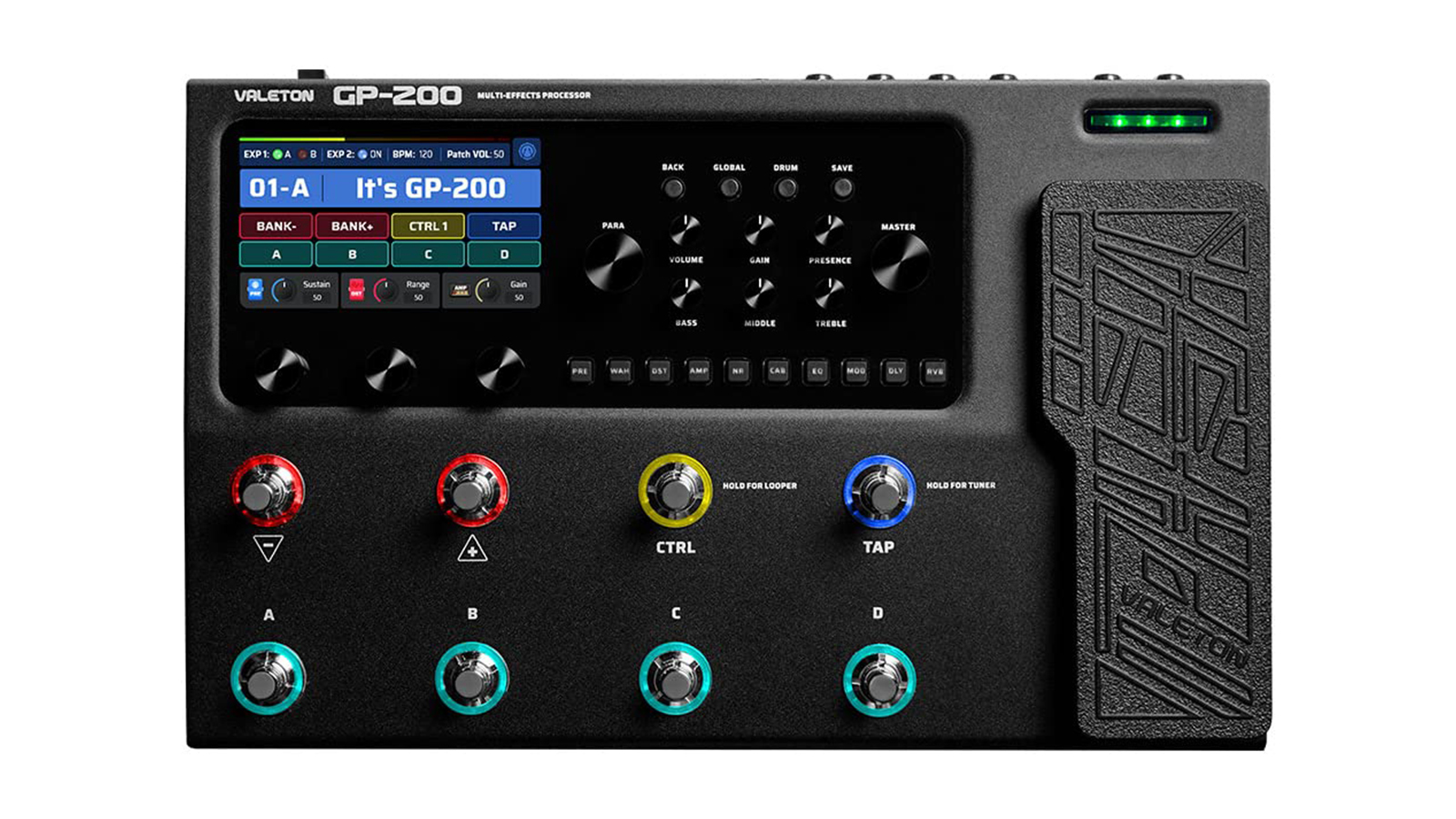
Valeton GP-200
$349/£299
The Valeton GP-200 is arguably the best and most versatile budget floor modeler on the market. It features a dizzying 140 amp/cab sounds – including an Überschall copy – over 240 effects and eight footswitches. External IRs can be loaded in, too, and it offers 24-bit, 44.1kHz processing. So there’s plenty of tone sculpting possibilities within its housing.
What's more, there are even cheaper versions of the model like the GP-200LT ($279/£239) which do away with the expression pedal – something there’s no evidence of IV using – and the GP-100 ($1495/£119) which has an expression pedal and two footswitches.
How to sound like IV: Effects
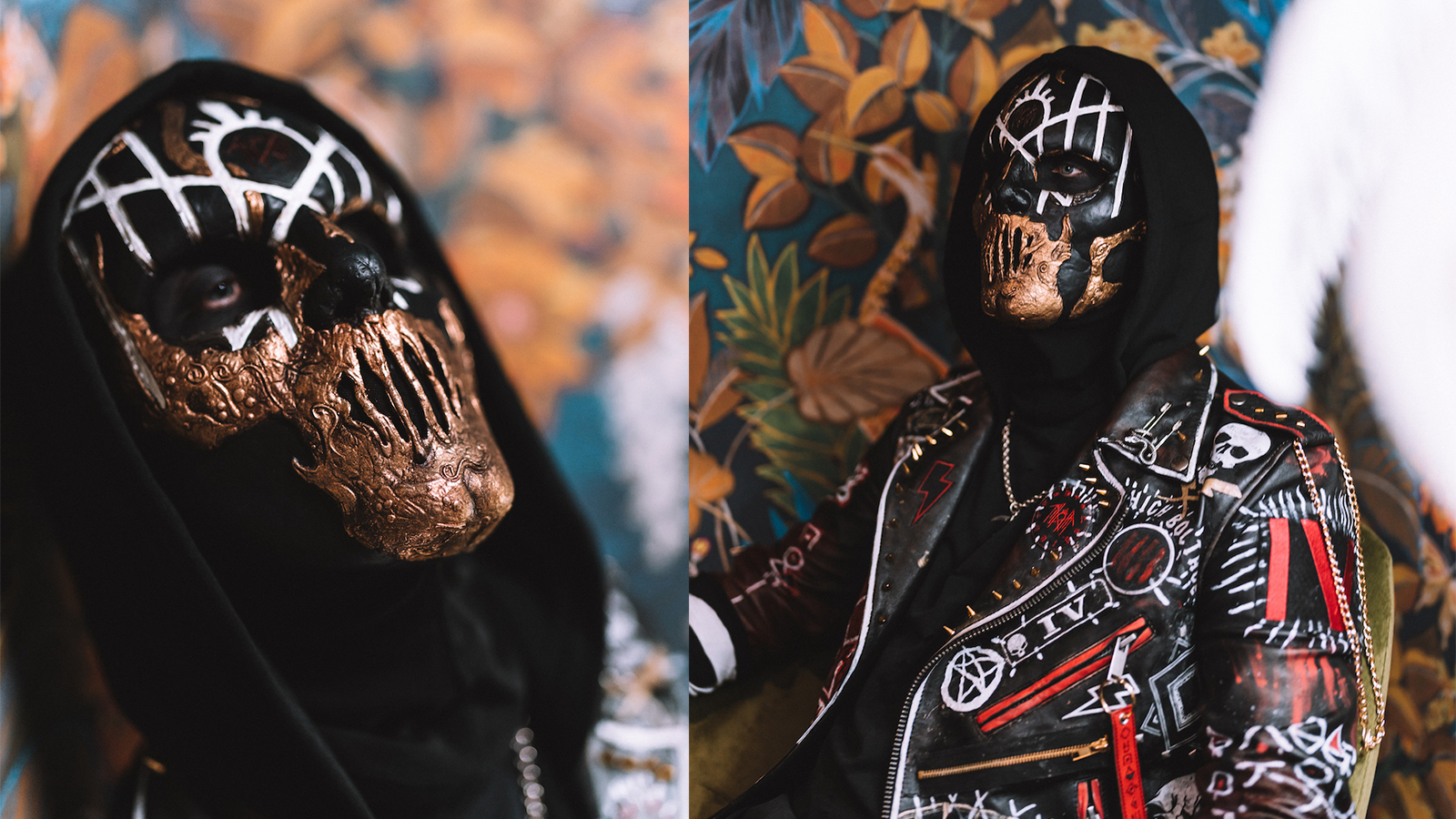
Sleep Token don’t go overboard with effects, the focus here is on coloring tones to match the mood of the moment, so both modelers featured above should deliver suitable palettes.
The Summoning’s outro employs a clean tone spiced with a little flanger, so try and sculpt a flavorsome tone that still lets plenty of the chime of the guitar to cut through. Rolling the gain off a Soldano SLO-100 crunch channel will give you the right tonality. IV also uses an envelope for some gritty lo-fi vibes during the song’s breakdown, while the Hypnosis intro sprinkles a tremolo effect onto IV’s rhythm tone.
Generally speaking, the band’s spooky aesthetics come from the synths and ambient layers that dwell beneath IV’s teeth-grinding rhythm tones. If you wanted to replicate the synths from The Night Does Not Belong to God, for instance, you’ll want a bright clean amp like a Fender Twin, a slow delay and a shimmery reverb with bass-heavy EQs to eliminate some pick attack.
A freelance writer with a penchant for music that gets weird, Phil is a regular contributor to Prog, Guitar World, and Total Guitar magazines and is especially keen on shining a light on unknown artists. Outside of the journalism realm, you can find him writing angular riffs in progressive metal band, Prognosis, in which he slings an 8-string Strandberg Boden Original, churning that low string through a variety of tunings. He's also a published author and is currently penning his debut novel which chucks fantasy, mythology and humanity into a great big melting pot.

